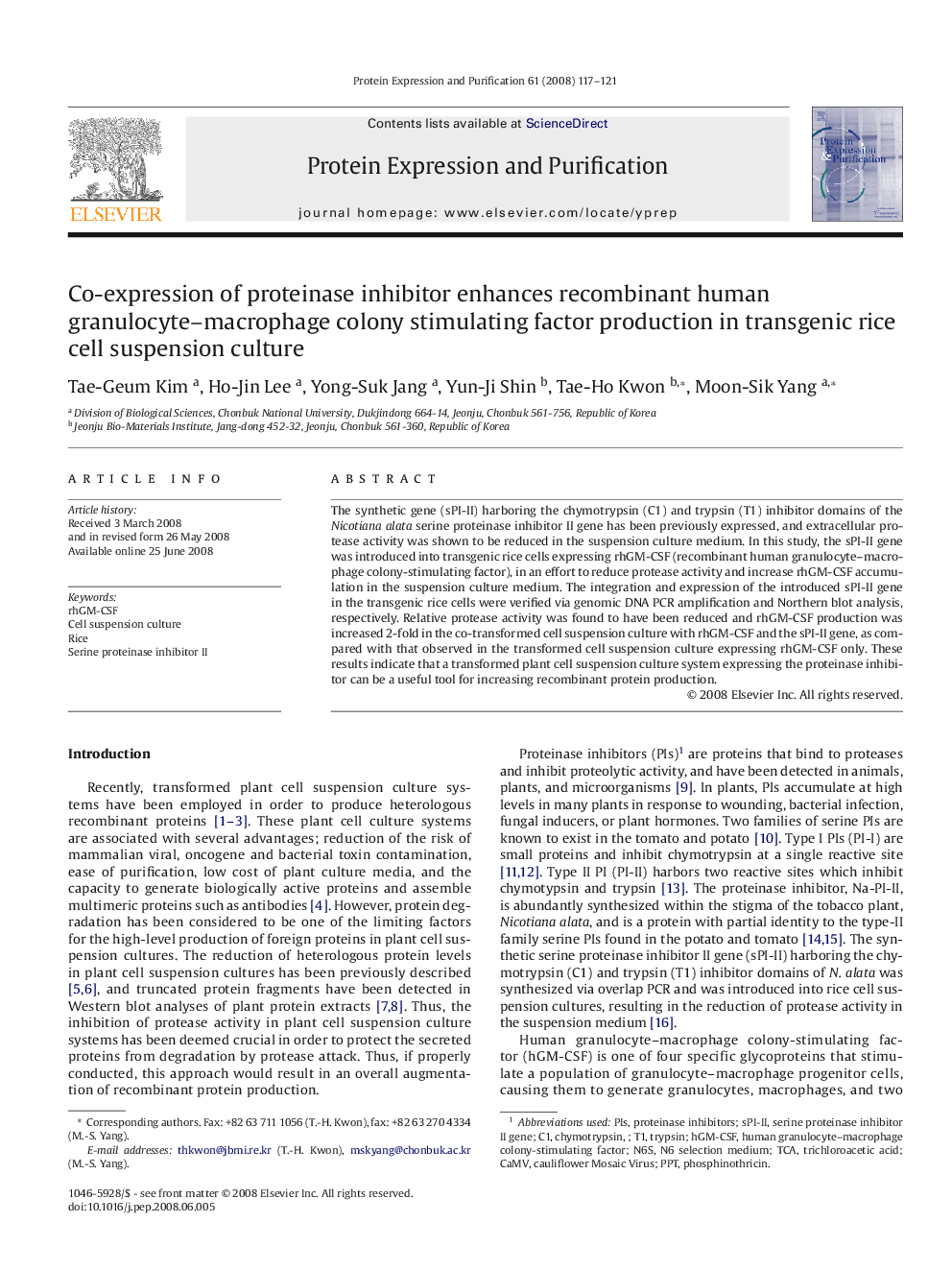| Article ID | Journal | Published Year | Pages | File Type |
|---|---|---|---|---|
| 2021430 | Protein Expression and Purification | 2008 | 5 Pages |
The synthetic gene (sPI-II) harboring the chymotrypsin (C1) and trypsin (T1) inhibitor domains of the Nicotiana alata serine proteinase inhibitor II gene has been previously expressed, and extracellular protease activity was shown to be reduced in the suspension culture medium. In this study, the sPI-II gene was introduced into transgenic rice cells expressing rhGM-CSF (recombinant human granulocyte–macrophage colony-stimulating factor), in an effort to reduce protease activity and increase rhGM-CSF accumulation in the suspension culture medium. The integration and expression of the introduced sPI-II gene in the transgenic rice cells were verified via genomic DNA PCR amplification and Northern blot analysis, respectively. Relative protease activity was found to have been reduced and rhGM-CSF production was increased 2-fold in the co-transformed cell suspension culture with rhGM-CSF and the sPI-II gene, as compared with that observed in the transformed cell suspension culture expressing rhGM-CSF only. These results indicate that a transformed plant cell suspension culture system expressing the proteinase inhibitor can be a useful tool for increasing recombinant protein production.
